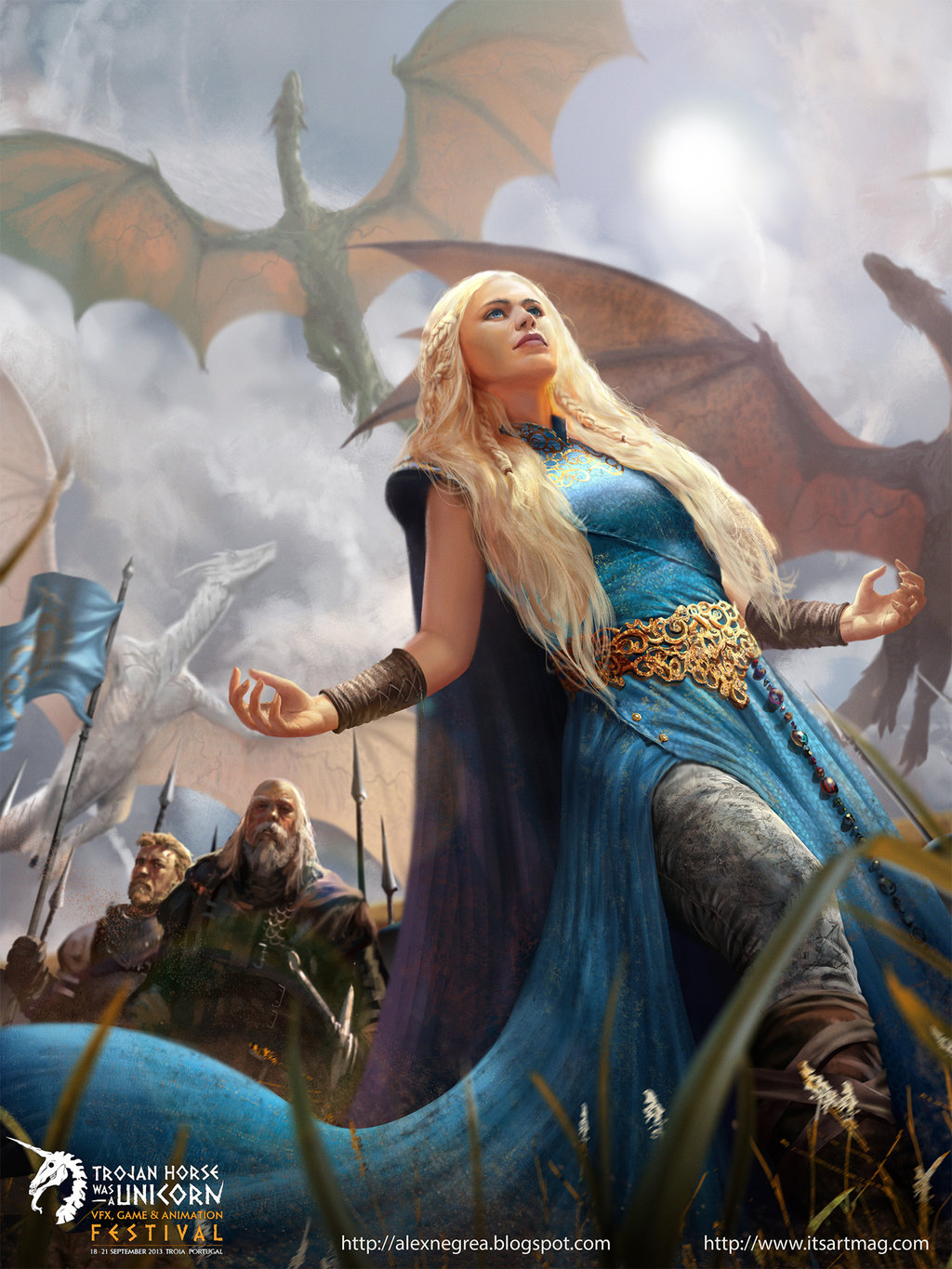The phrase "Mother of Dragons" resonates deeply within the realm of fantasy literature and television, symbolizing strength, resilience, and the intricate bond between a mother and her children. This title belongs to Daenerys Targaryen, a pivotal character from George R.R. Martin's "A Song of Ice and Fire" series and the acclaimed HBO adaptation, "Game of Thrones." Daenerys's journey from an exiled princess to a powerful queen is filled with trials, tribulations, and a fierce determination to reclaim her family's legacy. Her dragon companions, born from her unwavering spirit and the ashes of her past, have become iconic representations of her identity and power.
Throughout her story, the "Mother of Dragons" captivates audiences with her complex character arc, showcasing the duality of her nature as a nurturing mother and a formidable ruler. Her dragons, Drogon, Rhaegal, and Viserion, not only symbolize her strength but also serve as extensions of her will and ambition. As Daenerys navigates the treacherous political landscape of Westeros, her relationships with her dragons highlight the themes of loyalty, sacrifice, and the consequences of power. The narrative of the Mother of Dragons is a powerful commentary on leadership and the cost of ambition.
As viewers and readers delve into the world of "Game of Thrones," they are left to ponder the complexities of Daenerys's character. Is she a liberator, or does her relentless pursuit of power lead her down a dark path? Can a mother's love for her children justify her actions, even when they veer into moral ambiguity? These questions linger, making the Mother of Dragons a timeless figure in the annals of fantasy storytelling.
Who is the Mother of Dragons?
The Mother of Dragons, also known as Daenerys Targaryen, is one of the most iconic characters in the "Game of Thrones" series. Her character is a complex blend of ambition, compassion, and fierce determination, making her a central figure in the struggle for power in Westeros. Daenerys's journey from a timid girl to a powerful queen is a testament to her strength and resilience.
What is Daenerys Targaryen's Biography?
Daenerys Targaryen, born in 284 AC, is the last surviving member of the Targaryen dynasty, which ruled the Seven Kingdoms of Westeros before being overthrown. As a child, she faced immense hardships, growing up in exile alongside her brother Viserys. Her story unfolds as she is married off to Khal Drogo, a powerful Dothraki leader, which ultimately leads to her transformation into the Mother of Dragons.
| Personal Details | Information |
|---|---|
| Name | Daenerys Targaryen |
| Title | Mother of Dragons |
| House | Targaryen |
| Born | 284 AC |
| Parents | Aerys II Targaryen, Rhaella Targaryen |
| Siblings | Viserys Targaryen |
| Spouse | Khal Drogo (deceased) |
| Dragons | Drogon, Rhaegal, Viserion |
How Did Daenerys Become the Mother of Dragons?
Daenerys's transformation into the Mother of Dragons begins when she is gifted three dragon eggs as wedding presents. After the death of her husband Khal Drogo, she places the eggs on his funeral pyre, believing that they will not only honor his memory but also bring forth her dragons. The act of walking into the flames ultimately results in the hatching of the eggs, marking her rebirth as a powerful leader and the emergence of her dragons.
What Are the Characteristics of the Mother of Dragons?
Daenerys Targaryen embodies a unique set of characteristics that define her as the Mother of Dragons:
- Compassion: Despite her fierce nature, Daenerys shows kindness and empathy towards the oppressed.
- Ambition: She is driven by a desire to reclaim her family's throne and restore her family's legacy.
- Determination: Daenerys faces numerous challenges but remains resolute in her quest for power.
- Leadership: Her ability to rally followers and inspire loyalty is a testament to her leadership skills.
- Connection to Dragons: The bond she shares with her dragons symbolizes her strength and power.
What Challenges Did the Mother of Dragons Face?
Daenerys's journey is fraught with challenges that test her resolve and character:
- Exile: Growing up in exile shapes her identity and fuels her desire for power.
- Loss: The deaths of loved ones, including her husband and close allies, deeply impact her.
- Morality: Daenerys grapples with the ethical implications of her quest for power.
- Betrayal: She faces betrayal from those she trusted, leading to moments of doubt and despair.
What Does the Mother of Dragons Represent?
The Mother of Dragons represents the complexities of power, motherhood, and sacrifice. Her character serves as a cautionary tale about the consequences of ambition and the moral dilemmas faced by leaders. Daenerys's journey highlights the fine line between liberation and tyranny, urging viewers to consider the true cost of power.
How Does the Legacy of the Mother of Dragons Continue?
Even after the conclusion of "Game of Thrones," the legacy of the Mother of Dragons endures. Daenerys's character has sparked discussions about female empowerment, leadership, and the moral complexities of ruling. Her story serves as a reminder of the strength found in vulnerability and the importance of empathy in leadership.
In conclusion, the Mother of Dragons is a multifaceted character whose legacy continues to resonate with audiences worldwide. Through her triumphs and tribulations, Daenerys Targaryen embodies the struggle for power, the depth of maternal love, and the complexity of human nature. As fans reflect on her journey, they are left with a thought-provoking exploration of what it truly means to be a leader in a world filled with chaos and conflict.
Unveiling The Glittering World Of Ju Ju Bee Drag Queen
Discovering The Excitement Of Top Golf Atlanta
Discovering The Allure Of Ghita El Allaki


